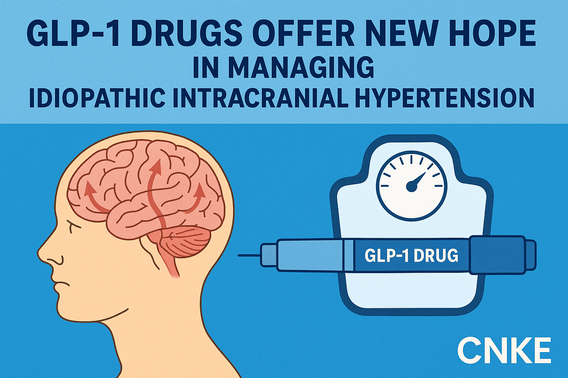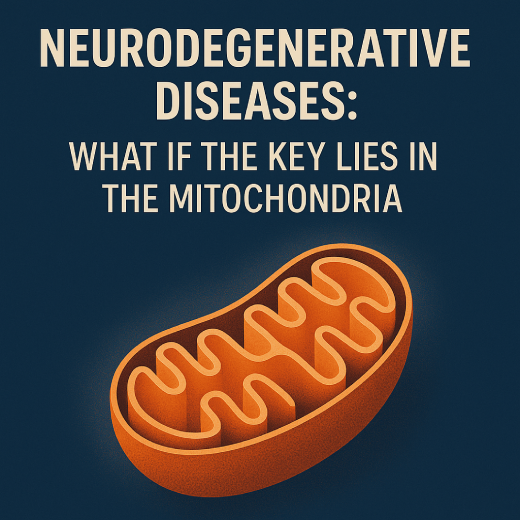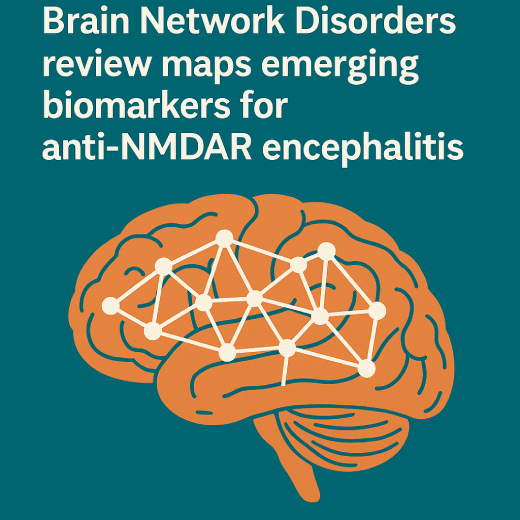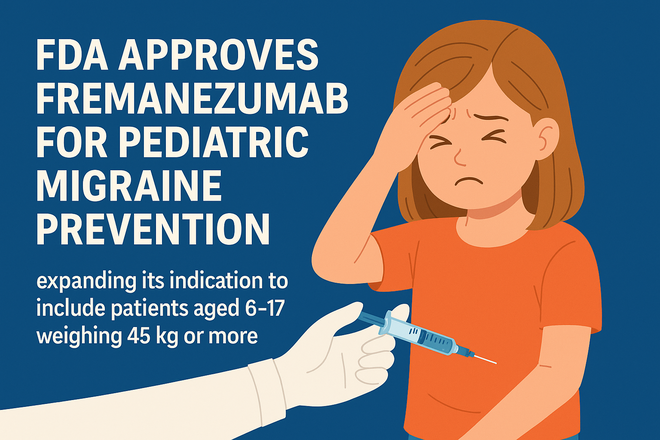Index
GLP-1 Drugs Show Promise in Treating Idiopathic Intracranial Hypertension: A New Frontier in IIH Management
In a major development for the treatment of Idiopathic Intracranial Hypertension (IIH), a large retrospective cohort study from the TriNetX US Collaborative Network suggests that GLP-1 receptor agonist (GLP-1 RA) therapy may significantly improve outcomes compared to traditional treatments such as acetazolamide and topiramate.
Study Highlights
- Population: 1,110 adults with IIH (555 treated with GLP-1 RAs and 555 with conventional therapy)
- Duration: 1-year follow-up using real-world electronic health records (2005–2024)
- Outcomes: GLP-1 RA users had fewer symptoms, reduced medication use, fewer procedures, and lower mortality
What Is IIH and Why Does This Matter?
IIH is a condition marked by increased intracranial pressure with no identifiable cause. It typically affects obese women of childbearing age and can lead to debilitating symptoms, including headaches, visual disturbances, and papilledema. Weight loss remains the cornerstone of therapy, but sustained results are difficult to achieve through diet alone.
GLP-1 RAs—originally developed to treat diabetes—have recently gained attention for their weight-loss effects. This study provides compelling evidence that their benefits may extend to patients with IIH, possibly offering a dual benefit: weight regulation and reduced intracranial pressure.
Key Findings
- Medication use: GLP-1 RA users were significantly less likely to require additional medications such as acetazolamide (RR 0.36) and topiramate (RR 0.57)
- Symptoms: Lower risk of headache (RR 0.45), visual disturbances (RR 0.60), and papilledema (RR 0.19)
- Procedures: Reduced need for CSF shunts, bariatric surgery, and other invasive interventions (RR 0.44)
- Mortality: Lower 1-year mortality in GLP-1 RA users (RR 0.36)
Weight Loss: Not the Whole Story
Interestingly, BMI reductions in the GLP-1 RA group were modest and comparable to the control group, suggesting that the benefits of GLP-1 RAs in IIH may extend beyond weight loss alone. The study's authors propose potential neuroprotective mechanisms—including modulation of cerebrospinal fluid production and intracranial pressure regulation—based on preclinical research.
How Do GLP-1 RAs Compare to Bariatric Surgery?
While bariatric surgery remains the most effective weight-loss strategy, it carries surgical risks and higher upfront costs. The study found that GLP-1 RAs were associated with better symptom control and fewer procedures than bariatric surgery—despite achieving less weight loss. This raises the possibility of GLP-1 RAs serving as a safer, more accessible first-line therapy in IIH.
Implications for Clinical Practice
These findings may shift the treatment paradigm for IIH. GLP-1 RAs offer a non-invasive option that not only supports weight loss but also appears to reduce symptom burden and reliance on medications and surgical interventions.
Future Directions
The authors call for prospective trials to confirm their findings and clarify the precise mechanisms at play. The halted Phase 3 IIH:Evolve trial highlights the need for renewed efforts to explore the long-term safety, efficacy, and cost-effectiveness of GLP-1 RAs in IIH.
Expert Commentary
“This study is a major step forward,” said Dr. Dennis J. Rivet II, senior author. “It opens the door for a new class of medications to be considered in a condition with limited options and high unmet need.”
Takeaway for Pediatric Neurologists
While this study focused on adults, the implications for younger patients—especially adolescents with obesity-related IIH—are profound. Future research may examine whether these promising results can be safely extended to the pediatric population.
As the intersection of obesity, neuroinflammation, and intracranial pressure continues to evolve, GLP-1 RAs may well emerge as a transformative therapy in the battle against IIH.
Published: July 14, 2025
Source: JAMA Neurology
Corresponding Author: Dr. Dennis J. Rivet II, Virginia Commonwealth University
Sioutas, G. S., Mualem, W., Reavey-Cantwell, J., & Rivet, D. J., II. (2025). GLP-1 Receptor Agonists in Idiopathic Intracranial Hypertension. JAMA Neurology. https://doi.org/10.1001/jamaneurol.2025.2020







